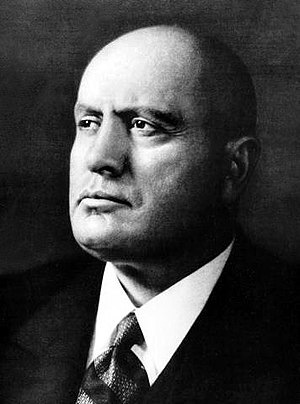Galdo Bertocca
This article is a work-in-progress because it is incomplete and pending further input from an author. Note: The contents of this article are not considered canonical and may be inaccurate. Please comment on this article's talk page to share your input, comments and questions. |
His Excellency Galdo Bertocca | |
|---|---|
 | |
| Prime Minister of Caphiria | |
| In office 1 January 1931 – 20 August 1943 | |
| Monarch | Magasevetus |
| Preceded by | Maccio Rentivoglia |
| Succeeded by | Antinus D'Agano |
| Senator of Caphiria | |
| In office 15 January 1925 – November 15 1930 | |
| Epistrategos of Veltorina | |
| In office 18 May 1910 – 5 January 1915 | |
| Propraetor of Western Provinces | |
| In office 30 March 1920 – 1 December 1930 | |
| Personal details | |
| Born | Galdo Gracagosta Bertocca 07 March 1878 Magovocorte, Magenevum Province, Caphiria |
| Died | 25 Dec 1949 (aged 68) Seia, Tryhstian Littoral |
| Cause of death | Execution by firing squad |
| Nationality | |
| Political party | Caphiric Fascist Party (1922-1943) |
| Other political affiliations | Solidarity Party National Workers Group Collective Uniformity Movement |
| Domestic partner | Cestasia Ibalini |
| Parents | Colchrocus and Myria Bertocca |
| Education | Lingri Institute |
| Alma mater | Cadivizzia University |
| Occupation | Politician, journalist, novelist, teacher |
| Military service | |
| Nickname(s) | Il Malleolo |
| Allegiance | |
| Branch/service | |
| Years of service | 1894-1909 |
| Rank | Field Captain (Signiferii) |
| Unit | Legion CXXVII, Cohort V |
| Battles/wars |
|
Galdo Gracagosta Bertocca (07 March 1881 - 25 Dec 1959) was a Caphirian politician who served as the Prime Minister of Caphiria from 1931 to 1943 under the reign of Imperator Magasevetus. Bertocca was known for his ultra-nationalistic and authoritarian tendencies, Bertocca played a critical role in establishing fascisma or Caphiric Fascism, and in influencing Caphiria's participation in the Second Great War.
Bertocca's rise in Caphirian politics coincided with a tumultuous period in Caphirian history. Caphiria's expansionist ambitions had been realized to a significant degree, establishing continental dominance in Sarpedon. Concurrently, however, the nation was grappling with a severe financial crisis. Amidst these crises, Imperator Magasevetus, battling illness and a preoccupation with power consolidation, appointed Bertocca to the Prime Minister's office in 1931. Bertocca gradually became a trusted advisor and gained substantial influence over Caphirian governance, particularly by 1938. As Prime Minister, Bertocca capitalized on the public desire for strong leadership and stability, enacting numerous policies that enhanced centralized power and drastically altered Caphirian society. His reign marked a period of significant political and societal changes that still echo in Caphirian society.
Bertocca's rule, however, was met with resistance. His administration was marred by unsuccessful military campaigns and controversial policies that resulted in an unstable power dynamic. The tension between Bertocca and Magasevetus led to the Third Civil War, occurring alongside the Second Great War. This conflict culminated in Bertocca's exile to the Escal Isles in 1943. Despite his exile, Bertocca's impact on Caphirian politics persisted. The decision by the Imperator to exile him, instead of administering capital punishment for treason, created discontent among the populace, further straining the relationship between the Imperator and the citizens of Caphiria. In an attempt to resolve this, Magasevetus approved a covert operation to assassinate Bertocca in 1949. However, the operation took a catastrophic turn, resulting in the 1949 Christmas Massacres, a mass murder and execution incident involving Bertocca and 47 other individuals, including 24 civilians.
Bertocca's ideological framework of fascisma advocated for a centralized, powerful state, the celebration of Caphirian culture, and the enforcement of societal order through rigorous control. This philosophy continues to generate discussion and debate in modern Caphirian society. Despite the controversy surrounding his regime, Bertocca's influence has left a lasting imprint on Caphiria's political landscape, shaping national identity and discourse on nationalism, societal control, and the role of the state in society.